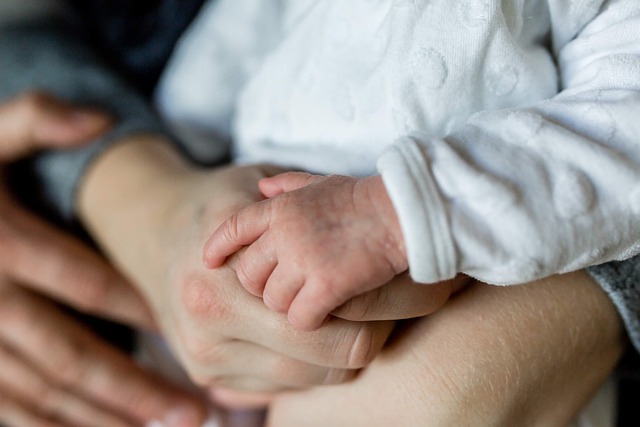Intergenerational connections are vital for robust and resilient family bonds. By facilitating multi-age interactions in dedicated spaces, we enable the exchange of wisdom, fresh perspectives, and tech skills, fostering mutual respect and understanding. Parenting support groups, caregiving help resources, and mental health support create platforms for connection, shared experiences, and invaluable emotional support systems, making every family member feel valued. These interactions promote interdependence, a sense of belonging, and emotional growth across generations, strengthening family networks through community support for various challenges. Engaging in collective activities enhances mental well-being, fosters deep connections, and alleviates caregiving stress. Cultivating supportive communities with accessible resources, open communication, and parenting/caregiving groups is key to building strong, resilient family ties over time.
In today’s fast-paced world, intergenerational bonding within support networks is more crucial than ever. As communities evolve, so do the challenges families face. Building strong emotional support systems strengthens family bonds and fosters a sense of belonging. This article explores strategies to create supportive environments, leverage community resources like parenting support groups, and facilitate open communication across age groups, ultimately enhancing mental health and well-being for all. Discover how these connections can revolutionize family dynamics and provide invaluable family caregiving help.
The Power of Intergenerational Connections: Strengthening Family Bonds
Intergenerational connections hold immense power in fostering strong and resilient family bonds. By bringing together individuals from different age groups within a support network, we create a unique opportunity for learning, sharing experiences, and building deeper relationships. Older generations can offer wisdom and life lessons, while younger members can provide fresh perspectives and technological expertise, bridging the gap between the two. This dynamic exchange strengthens the fabric of family units, fostering an environment of mutual respect and understanding.
In today’s fast-paced world, where schedules often leave little time for quality family moments, dedicated community spaces and support groups play a vital role in encouraging these intergenerational interactions. Parenting support groups, family caregiving help resources, and mental health support for families create platforms where individuals can connect, share experiences, and gain invaluable emotional support systems. Building family networks through such initiatives not only strengthens the ties that bind but also ensures a supportive environment where every member feels valued and heard.
– Exploring the benefits of multi-generational family interactions
Family interactions that span generations offer a wealth of benefits for all involved. Multi-generational gatherings facilitate interdependence and foster a sense of belonging, where older family members can pass on wisdom and values while younger ones contribute fresh perspectives. This exchange enriches each individual’s life experience, promoting emotional growth and resilience.
Such interactions strengthen family networks by creating supportive environments that cater to diverse needs. They provide a community for families facing various challenges, from parenting support groups to family caregiving help. By encouraging open communication and shared activities, these gatherings can also improve mental health support for families, building stronger, more resilient emotional support systems. Strengthening family ties through these connections benefits not just the immediate family but also future generations by creating a legacy of connectedness and mutual aid.
– How shared experiences foster deeper relationships
Shared experiences play a pivotal role in fostering deeper relationships within support networks, especially among families and caregiving communities. When family members or care partners engage in activities together, they create lasting memories and bond over common experiences. Whether it’s participating in community events, trying new hobbies, or simply sharing everyday tasks, these shared moments strengthen the emotional connections that form the backbone of robust support systems. In the context of family caregiving, where one member often takes on a significant role, shared experiences can help alleviate the isolation and stress associated with caregiving, creating a more harmonious environment.
Building family networks through collective experiences enhances communication and understanding between generations. Parenting support groups, for instance, provide a platform for new parents to connect with experienced ones, offering both practical advice and emotional support. These interactions not only strengthen family ties but also help in transmitting values and traditions across generations. Moreover, creating supportive environments that encourage shared experiences can significantly contribute to the overall mental health of families, ensuring that each member feels valued and connected within their community.
Creating a Supportive Ecosystem for Families
Creating a supportive ecosystem for families is essential for fostering strong and interconnected bonds across generations. This involves cultivating a community that prioritizes family support resources, encourages open communication, and provides accessible platforms for parents and caregivers to connect. Building family networks through parenting support groups or community events can significantly strengthen family ties while offering emotional support systems tailored to the unique challenges of different life stages.
By promoting a culture of mutual aid within these networks, families can access caregiving help and mental health support, ensuring that each member feels valued and supported. This inclusive approach not only enhances overall well-being but also instills a sense of belonging, making it easier for individuals to navigate life’s ups and downs together. A harmonious and supportive environment thus created serves as the foundation for intergenerational bonding, fostering resilience and strengthening family connections over time.
Encouraging intergenerational bonding within support networks is not just a trend; it’s a powerful strategy to build strong, resilient families. By fostering shared experiences and creating a web of emotional support systems, we can enhance the well-being of all ages. Family caregiving help and parenting support groups play a vital role in creating supportive environments that strengthen family ties and promote mental health. Leveraging community for families ensures that everyone has access to resources and connections they need to thrive, ultimately enriching our social landscape with stronger, more united communities.
